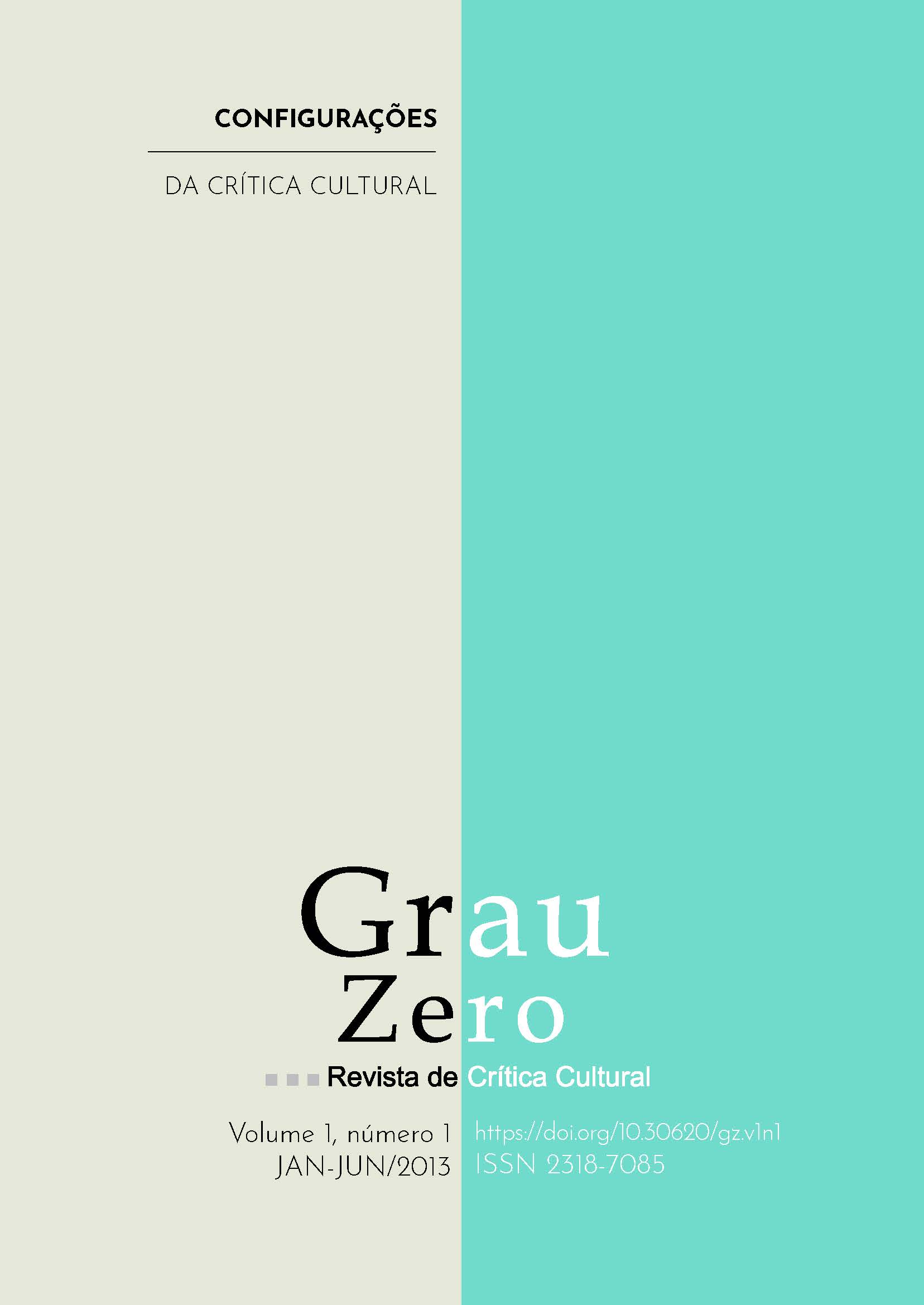Japanese-Canadian wartime history through Joy Kogawa’s Obasan
DOI:
https://doi.org/10.30620/gz.v1n1.p225Palavras-chave:
History, Identity, Representation, Japanese-Canadians, World War IIResumo
This article intends to investigate the narration of historical facts under new perspectives trough the novel Obasan, from the Japanese-Canadian author Joy Kogawa. The choice of the mentioned novel is due to the fact that it enables the observation of the manners the concepts of identity, memory and representation interact to portray new representations of a determined people by the reinterpretation of historical facts. Throughout the article it will be analyzed the varied narrative strategies Joy Kogawa employs to represent new versions of facts related to Japanese Canadians and their internment promoted by Canadian government in inner Canada during World War II. It will also be observed the manners through which fiction can collaborate to a people’s search for redemption with their traumatic past and consequent actions towards improvements for their present.
Downloads
Referências
CARR, Edward H. “História, Ciência e Moralidade”. In:_________. Que é História? Trad. Lúcia Maurício de Alverga. Rio de Janeiro: Editora Paz e Terra, 2002. p. 91120.
CONNOR, Steven. “The Novel in Contemporary History”. In:________. The English Novel in History, 19501995. New York: Routledge, 2001. p. 143.
FUJITA, Gayle K. “‘To Attend the Sound of Stone’: The Sensibility of Silence in Obasan”. MELUS, v. 12, n. 3, Ethnic Women Writers IV, 1985, p. 3342. Available at: http://www.jstor.org/stable/467119?origin=JSTORpdf. Accessed on January 10th, 2012.
GRICE, Helena. “Reading the Nonverbal: The Indices of Space, Time Tactility and Taciturnity in Joy Kogawa’s Obasan”. MELUS, v. 24, n. 4, Asian American Literature, 1999, p. 93105. Available at: http://www.jstor.org/stable/468175?origin=JSTORpdf. Accessed on January 3rd, 2012.
KOGAWA, Joy. Obasan. Ontario: Penguin Books, 1985.
MAGOCSI, Paul Robert. “Introduction”. In: _________ (ed). Encyclopedia of Canada’s Peoples. Toronto: Toronto University Press, 1999. p. viixi.
ROY, Patricia E. “Not All Were Welcome: Canada and the Dilemma of Immigration”. In: MIWA, Kimitada & SCHULTZ, John, eds. Canada and Japan in the Twentieth Century. Toronto: Oxford University Press Canada, 1991. p. 216.
SOUZA, Gabriela Cavalcante Fróes de. Obasan, Obachan: Japanese Canadian history, memory and the noisy silences of Joy Kogawa and Hiromi Goto. 2007. 99 f. Dissertação (Mestrado em Letras) — Faculdade de Letras, Universidade do Estado do Rio de Janeiro, 2007. Available at: http://www.bdtd.uerj.br/tde_busca/processaPesquisa.php?listaIncluiPasta%5B%5D=204&processar=Processar. Accessed on September 12th, 2011.
SUNAHARA, Ann Gomer. The Politics of Racism: The Uprooting of Japanese-Canadians during the World War II. Toronto: James Lorimer and Company, Publishers, 2000.
TIEDEMANN, Heidi. After the Fact: Contemporary Feminist Fiction and Historical Trauma. Thesis (Philosophy Doctorate). Graduate Department of English, University of Toronto, Toronto, 2001. Available at: http://www.collectionscanada.gc.ca/obj/s4/f2/dsk3/ftp04/NQ63656.pdf. Accessed on January 2nd, 2012.
TSURUMI, Kazuko. “Japanese Canadians: The WarTime Experience”. In: MIWA, Kimitada & SCHULTZ, John, eds. Canada and Japan in the Twentieth Century. Toronto: Oxford University Press Canada, 1991. p. 1728.
WHITE, Hayden. “Narrative in Contemporary Historical Theory”. In:_________. The Content of the Form. London: The Johns Hopkins University Press, 1992. p. 2657.
WILLIS, Gary. “Speaking the Silence: Joy Kogawa’s Obasan”. Studies in Canadian Literature. v. 12, n. 2, 1987. Available at: http://www.lib.unb.ca/Texts/SCL/bin/get.cgi?directory=vol12_2/&filename=Willis.htm. Accessed on January 18th, 2012.
Downloads
Publicado
Como Citar
Edição
Seção
Licença
Copyright (c) 2013 Grau Zero – Revista de Crítica Cultural

Este trabalho está licenciado sob uma licença Creative Commons Attribution-ShareAlike 4.0 International License.
Autores que publicam nesta revista concordam com o seguinte termo de compromisso:
Assumindo a criação original do texto proposto, declaro conceder à Grau Zero o direito de primeira publicação, licenciando-o sob a Creative Commons Attribution License, e permitindo sua reprodução em indexadores de conteúdo, bibliotecas virtuais e similares. Em contrapartida, disponho de autorização da revista para assumir contratos adicionais para distribuição não-exclusiva da versão do trabalho publicada, bem como permissão para publicar e distribuí-lo em repositórios ou páginas pessoais após o processo editorial, aumentando, com isso, seu impacto e citação.


















